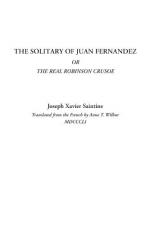That he might escape the gloomy ideas which assailed him more and more, it became necessary to avoid repose, to court bodily fatigue.
By continual exercise, his powers of locomotion had developed in incredible proportions. His feet had become so hardened that he no longer felt the briers or sharp stones. When he grew weary, he slept, in whatever place he found himself, and these were his only quiet hours.
To chase the agoutis had ceased to be an object worthy of his efforts; the kids took their turn, afterwards the goats. He had acquired such dexterity of movement, and such strength of muscle, such certainty of eye, that to leap from one projection of rock to another, to spring at one bound over ravines and deep cavities, was to him but a childish sport. In these feats he took pleasure and pride.
Sometimes, in the midst of his flights through space, he would seize a bird on the wing.
The goats themselves soon lost their power to struggle against such a combatant. Notwithstanding their number, had Selkirk wished it, he might have depopulated the island. He was careful not to do this.
If he wished to procure a supply of provisions, he directed his steps towards the most elevated peaks of the mountain, marked his game, pursued it, caught it by the horns, or felled it by a blow from his stick; after which his knife-blade did its office. The goat killed, he threw it on his shoulders, and, almost as swiftly as before, regained the cavernous grotto or leafy tree, in the shelter of which he could this day eat and sleep. He had for a long time forsaken his cabin, which was too far distant from his hunting-grounds.
If he had a stock of provision on hand, he still pursued the goats as usual, but only for his personal gratification. If he caught one, he contented himself with slitting its ear; this was his seal, the mark by which he recognized his free flock. During the last years of his abode in the island, he had killed or marked thus nearly five hundred.[1]
[Footnote 1: Long after his departure from Juan Fernandez, the ship’s crews, who came there for supplies, or the pirates who took refuge there, found goats whose ears had been slit by Selkirk’s knife.]
In the natural course of things, as his physical powers increased, his intelligence became enfeebled.
Necessity had at first aroused his industry, for all industry awakes at the voice of want; but his own had been due rather to his recollections than to his ingenuity. He thought himself a creator, he was only an imitator.
Whatever may have been said by those who, in the pride of a deceitful philosophy, have wished to glorify the power of the solitary man—if the latter, supported by certain fortunate circumstances, can remain some time in a state hardly endurable, it is not by his own strength, but by means which society itself has furnished. This is the incontestable truth, from which, in his pride, Selkirk had turned away.




